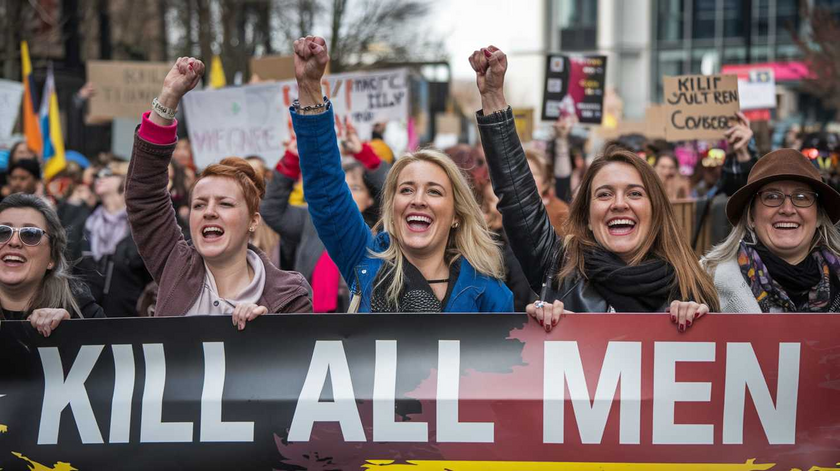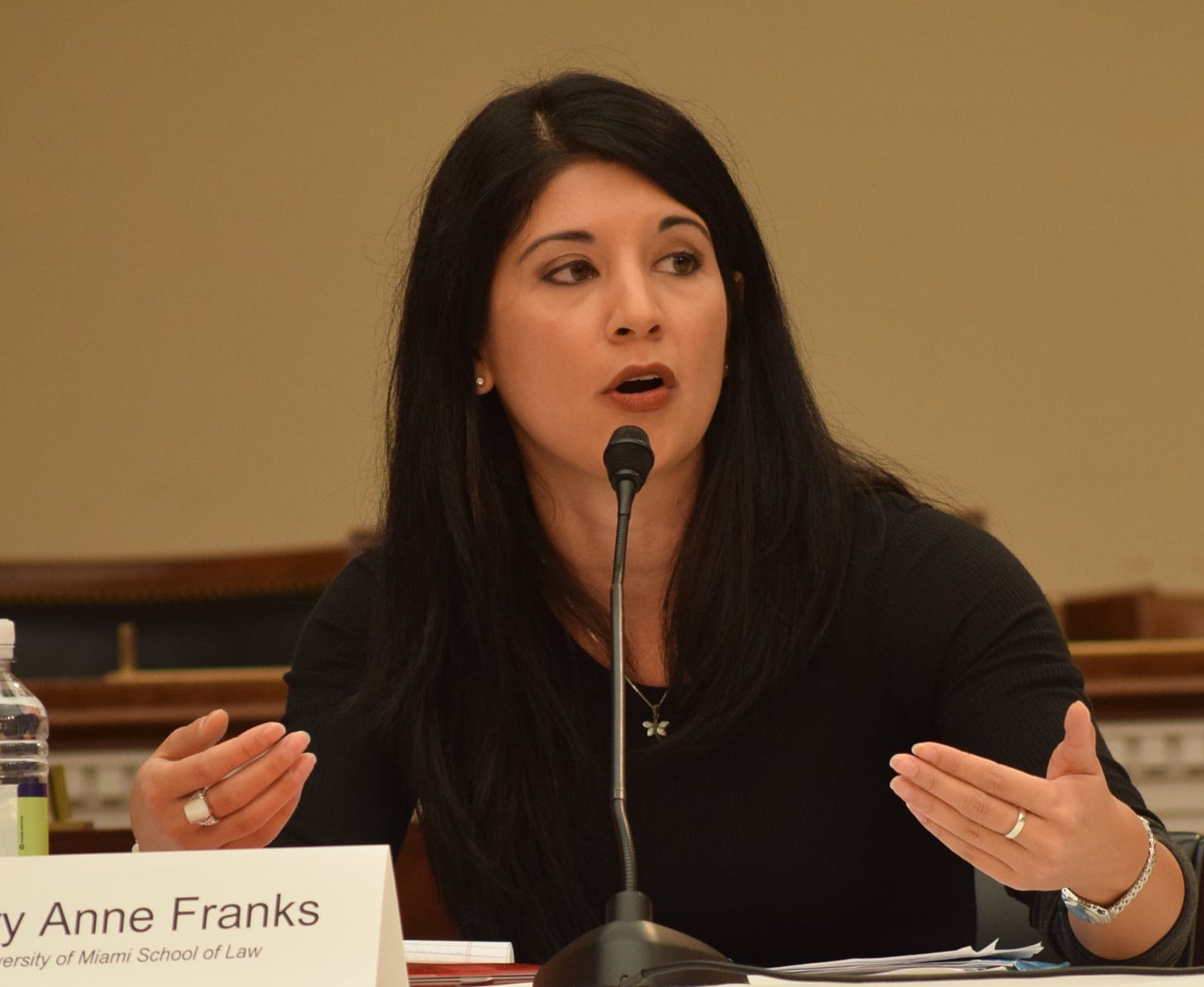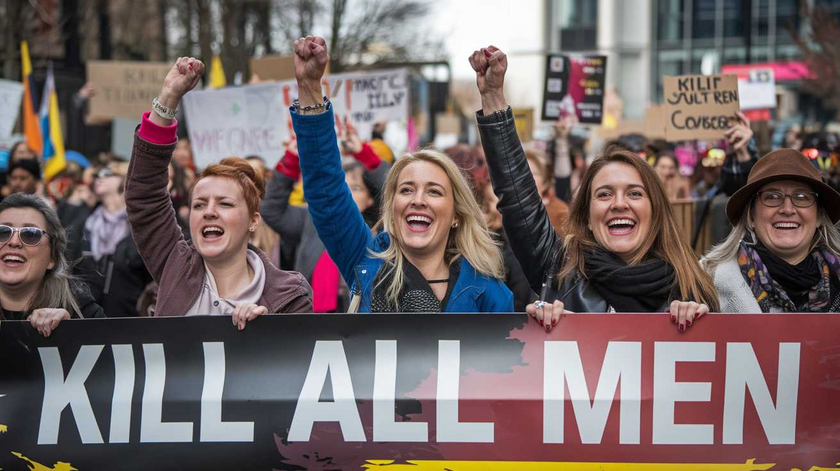 ai generated
ai generatedJustifying Women's Violence "Kill all Men"
Apparently the recent Wisconsin female school shooter, Samantha Rupnow, was known to spew hatred towards men and to believe that all men needed to be killed in order for women to be free to create a new world. I don’t think she offered an explanation of where the sperm might come from in order continue propagating this paradise, but maybe she just didn’t think that far ahead? The media is staying fairly quiet about this. Imagine the chaos that would ensue if a male mass shooter openly stated that he wanted to kill all women. You would never hear the end of it.
Where did this young woman get this sort of stance? You need look no further than the radical feminists who have been encouraging this sort of thing for some time. Valerie Solanas and her Scum Manifesto are an extreme version of this but there are many others. The depersonalization of men has been one of the hallmarks of not just radical feminism but also mainstream feminism. One example is the “I bathe in male tears“ mantra that is so prevalent and ubiquitous. People don’t think much of that phrase, but what would they think if someone said they bathe in Black tears, and wore t-shirts making that claim in public? What would the public think? They would quickly be labelled as dangerous racists. It’s easy to see the hatred when the group is almost anyone other than men. This sort of thing is diminishing the humanity of men. And there are many other ways that men’s humanity has been ignored or worse. The feminist refusal to allow men into treatment centers as victims of domestic violence is another example, or issues around reproductive rights or circumcision. Men are portrayed as not needing special care, of actually being less than human. This, along with men’s already existing disposability and gynocentric disadvantage, degrades men and prepares the ground for the more radical views of simply killing men. The explanation for this hatred is of course, that they deserve it. The "Battered Woman Syndrome" is a tragic example of this.
If you look around you can find evidence of even professionals who are moving towards a stance of allowing violence and possibly death towards men. The following is an abstract of an article written by a woman who is apparently a law professor who is claiming that women should be able to be violent towards men. Wikipedia calls her a legal scholar. Let’s take a quick look at the abstract and you be the judge.

She starts off by saying:
While both men and women can, and do, use violence against each other, men's violence against women is far more common, less justified, and more destructive than women's violence against men. One of the reasons for this asymmetry is that men do not fear retaliation for violence against women, whereas women do fear retaliation for their use of violence against men.
This assertion that men are unafraid of women’s violence ignores reality. Men attacked in their sleep, whether scalded with boiling oil, shot in the back, or run over by a car, never had the opportunity to fear—only to suffer. Would this scholar support the idea of men responding to women’s violence with reciprocal force? Almost certainly not.
Society would be better off as a whole if more women were willing to engage in justified violence against men, and fewer men were willing to engage in unjustified violence against women. To that end, women's justified violence against men should be encouraged, protected, and publicized.
Curious to understand what she defined as "justified violence," I read the article but found no clear criteria. The author repeatedly suggested that women should respond with violence to “unjustified violence,” but offered no specific markers for when violence might be deemed justified. She did, however, concede that women’s violent reactions could sometimes be overreactions, which she defended with the rationale that “the ends justify the means.”
The normalization of these dangerous ideas—in rhetoric, institutions, and academic discourse—is a troubling sign of society’s growing acceptance of misandry`. If such attitudes continue unchecked, they pave the way for further erosion of men’s humanity and dignity.
Men are good!
(The title is a link to the full paper)
Men, Women, and Optimal Violence
Authors
Mary Anne Franks, University of Miami School of LawFollow
Document Type
Article
Publication Date
2016
Abstract
While both men and women can, and do, use violence against each other, men's violence against women is far more common, less justified, and more destructive than women's violence against men. One of the reasons for this asymmetry is that men do not fear retaliation for violence against women, whereas women do fear retaliation for their use of violence against men. The distribution of violence between the genders, then, is suboptimal. Society would be better off as a whole if more women were willing to engage in justified violence against men, and fewer men were willing to engage in unjustified violence against women. To that end, women's justified violence against men should be encouraged, protected, and publicized. This will require a reversal of the current trend in legal and social practices, which is to tolerate and encourage men's unjustified violence against women while discouraging and legally restricting women's violence against men. Even if encouraging an increase in women's justified violence against men may sometimes result in unjustified or disproportionate violence in individual situations, the overall effects of the redistribution of violence will be preferable to the current asymmetry.



















